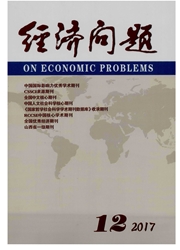

 中文摘要:
中文摘要:
利用我国1994~2014年季度统计数据,根据动态随机一般均衡建模思想,将居民消费习惯形成和资本调整成本引入到RBC模型,并对我国宏观经济的波动性特征进行了实证分析。研究结果表明:我国居民的闲暇习惯形成要强于消费习惯形成,但闲暇习惯形成难以持久且容易消失,而居民的消费习惯形成虽相对较弱但更加持久;居民的消费习惯形成有助于平滑消费,从而平抑宏观经济波动;资本调整成本的存在会加剧宏观经济的波动性;居民的闲暇习惯形成在一定程度上能够减轻资本调整成本变动对劳动投入的影响,从而能够起到平滑经济波动的作用。因而,在我国经济进入"新常态"下,就需要充分发挥市场机制,引导居民适时调整消费和闲暇,形成稳定的消费和闲暇习惯,以便于平抑波动,促使经济增长方式发生根本性变革。
 英文摘要:
英文摘要:
Based on dynamic stochastic general equilibrium modeling approach, this study introduces the forma- tion of consumer habits and capital adjustment costs into the RBC model by using the 1994 -2014 quarterly statis- tics data of China, and constructs empirical analysis of volatility characteristics of China' s macroeconomic. The re- suits show that: the leisure habits of Chinese residents are formed stronger than consumption habit, but leisure hab- its could not be stay in a long run and easily disappear. However, the formation of residents' consumption habits are although relatively weaker but more lasting; in addition, the formation of consumption habits are helpful to smooth consumption thereby stabilize macroeconomic fluctuations; the presence of capital adjustment costs will ex- acerbate macroeconomic volatility characteristics; the formation for leisure habits of residents would be able to miti- gate the impact of capital adjustment costs for labor input to some extent, which can play a role in smoothing eco- nomic fluctuations. Therefore, when economy enters into the "new normal" phase, in order to stabilize fluctuations in economic growth prompted a fundamental change, China need to give full play to the market mechanism for ad- justing consumption and leisure timely to form a stable consumer and leisure habit.
 同期刊论文项目
同期刊论文项目
 同项目期刊论文
同项目期刊论文
 期刊信息
期刊信息
